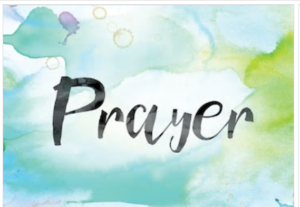In honor of Matthew Perry’s recent passing, we dedicate this post to all who are grieving during the holiday season.
12 Steps in Grief Process Source: https://dennistoll.ca/12_Steps_in_Grief_Process_981014.html
1.RECOVERING FROM A LOVED ONE’S DEATH (OR MAJOR LIFE EVENT) TAKES MORE THAN TIME.
Yet, if we allow ourselves the time to mourn we can gradually break grief’s grip on us. Recognizing the role and value of the grieving process orients us to accepting the fact of the death or life event. Acceptance marks a major step towards recovery.
2.GRIEF IS UNIVERSAL – GRIEVERS ARE DISTINCTIVE.
Grieving follows a pattern, but each griever experiences it differently. Awareness of the basic pattern reveals common ground for mutual help and support. Recognition of uniqueness enables grievers to help themselves, guides sympathizers in what to say and do.
3.SHOCK INITIATES US INTO MOURNING.
We go numb when someone we love dies (or an unwanted life event happens). We feel stunned, in a trance. This is nature’s way of cushioning us against tragedy. The length and depth of this state varies according to our relationship, the cause of death, reason for the life event to happen, whether it was sudden or expected, etc. Shock allows us time to absorb what has happened and to begin to adjust. The guidance of caring people can sustain new grievers. As numbness wears off and acceptance grows, we regain control of the direction of our lives.
4.GRIEF CAUSES DEPRESSION.
Grievers typically, but in varying degrees, experience loneliness and depression. This pain, too, will pass. Being alone need not result in loneliness. Reaching out to others is a key way to lessen loneliness and to overcome depression.
5.GRIEF IS HAZARDOUS TO OUR HEALTH.
The mental and emotional upset of a loss by death (or by an unwanted life event) causes physical distress and vulnerability to illness. Grievers sometimes neglect healthy nourishment and exercise, overindulge in drinking, smoking or medication. We might need a doctor’s advice in regard to our symptoms, their causes and their treatment.
6.GRIEVERS NEED TO KNOW THEY’RE NORMAL.
The death of a loved one (or the occasion of an unwanted life event) makes the future very uncertain. We might panic in the face of the unknown and fear life without the one who died (or the person involved in the life event). Panic prevents concentration and defers acceptance of the finality of death or other relationship loss. It tempts us to run from life, to avoid people and to refuse to try new things. We might even think we’re going crazy. Patience with ourselves and a willingness to accept help enable us to subdue panic and outgrow its confusion.
7.GRIEVERS SUFFER GUILT FEELINGS.
Many blame themselves after a loved one’s death (or an unwanted life event) for the death/event itself or for faults in the relationship. We have all made mistakes, and sincere regret is the best response to them. However, self-reproach out of proportion to our behavior affects our mental health and impedes our recovery. Close friends or a trusted counselor can aid us in confronting and dealing with guilt feelings, whether justified or exaggerated.
8.GRIEF MAKES PEOPLE ANGRY.
People in grief naturally ask “Why?” Why him? Why me? Why now? Why like this? Most of these questions have no answers. Frustration then causes us to feel the resentment and anger. We want someone to blame: God, doctors, clergy, ourselves, even the one who died (or was involved in the unwanted life event). If we can accept the lack of answers to “Why?” we might begin to ask, instead, what can we do now to grow through what has happened. Then we have started to move beyond anger and towards hope.
9.EMOTIONAL UPHEAVAL CHARACTERIZES GRIEVERS.
A loved one’s death (or unwanted life event) disrupts emotional balance. The variety and intensity of feelings seem overwhelming. Other grievers and counselors can help us interpret and deal with these feelings. As we come to understand what we experience, we can find appropriate ways to ventilate our emotions and to channel them constructively.
10.GRIEVERS OFTEN LACK DIRECTION AND PURPOSE.
At times in the grieving process, a kind of drifting occurs. Mourners find familiar and necessary activities difficult. We prefer to daydream about what was or fantasize about what might have been. If we can foster gratitude for the past and begin to assess our potential for the future, this will prove a passing phase, not a permanent state.
11.HEALING BRINGS HOPE TO GRIEVERS.
It takes time and effort, but gradually hope dawns for bereaved people. We learn to express emotions without embarrassment or apology. We cherish memories, bittersweet though they are. We begin to feel concern for and show interest in others. We make decisions and assume responsibility for ourselves. The example of the recovered grievers helps us discover and develop our own potential.
12.SURVIVORS REAFFIRM THEMSELVES AND CHOOSE LIFE.
Eventually, grievers recognize and embrace a healing truth: Grief has changed me but has not destroyed me. I’ve discovered new things about myself. I can build on strengths developed through adversity. I’m no longer my “old self” but I’m still me, I face the future with confidence. Life is worth living because I can love and be loved.
More Resources:
Five Stages of Grief – Source: https://psychcentral.com/lib/the-5-stages-of-loss-and-grief/
https://www.griefshare.org/about Grief Share Support Groups and workbook entitled “Your Journey From Mourning to Joy”. Phone 800-395-5755, or write to Grief Share, P O Box 1739 Wake Forest, NC 27588
https://www.samhsa.gov/find-help/national-helpline SAMHSA Substance Abuse and Mental Health Services or dial 988 on your phone or go to the Emergency Room.
https://www.stress.org/holmes-rahe-stress-inventory-pdf Holmes Rahe Change Scale

